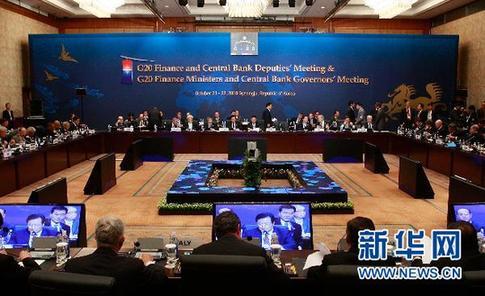China supports IMF quota reform at G20 meeting
China's central bank head said Saturday he supported the G20's decision on the International Monetary Fund (IMF) quota reform and called on the Fund to complete the reform before the upcoming G20 Seoul Summit in November.
|
|
"China supports the IMF quota reform, through which emerging countries will gain stronger representation and bigger says," Zhou Xiaochuan, Governor of the People's Bank of China (PBOC), said in Gyeongju, where he met with his counterparts from other G20 countries.
According to Zhou, the priority No. 1 task for the proposed IMF reform is to implement what has been decided at the meeting so that the quota shift can be completed before the Seoul Summit.
At the Gyeongju finance ministers' meeting, participants agreed to shift over 6 percent of the IMF quota to emerging or underrepresented countries, achieving a move forward from previous agreements of a five-percent quota shift.
"Each country, starting from a broader level, should push ahead with the reform in a cooperative," said Zhou.
Zhou also called on the IMF to aggressively coordinate the countries' stances so that the reform target could be accomplished within the time frame, while gearing up the reform process based on the results.
"China, the biggest developing and low-quota country, should be promoted in terms of its quota and voting right in the IMF," Zhou said.
Meanwhile, Finance Minister Xie Xuren also called for continued cooperation among G20 countries on maintaining the recovery pace and promoting the strong, sustainable, and balanced growth.
Xie also urged major currency issuing nations to keep comparative stabilization of exchange rates, saying there should be efforts to reduce negative impacts of exchange rate policies and to keep the global financial communities stable.
Xie, in the meantime, made a comment on development, lending support to concerted efforts to develop the least developed countries.
The remarks of top finance officials came at the end of the G20 finance ministers and central bank governors' meeting.
The meeting, held three weeks ahead of the G20 Seoul Summit, closed with an agreement on the IMF quota reform and market- dominated exchange rates.
 0
0 







